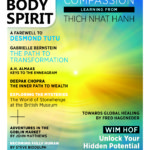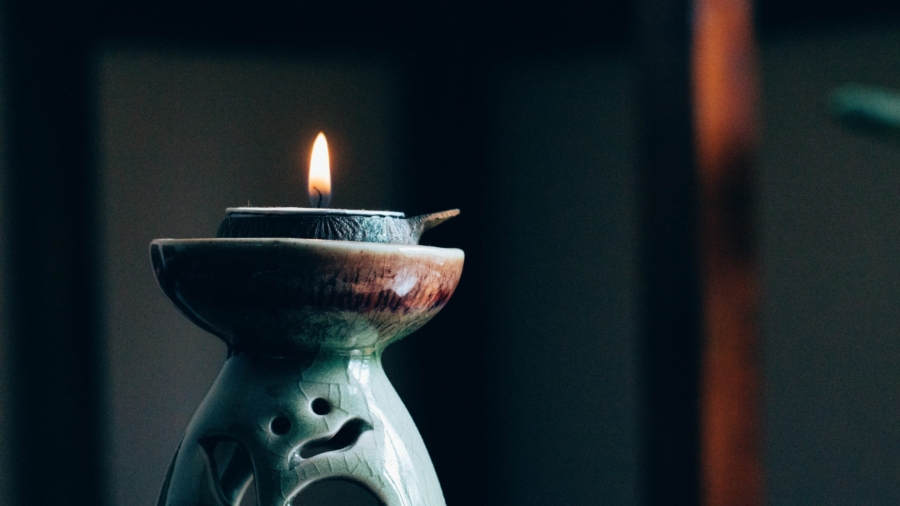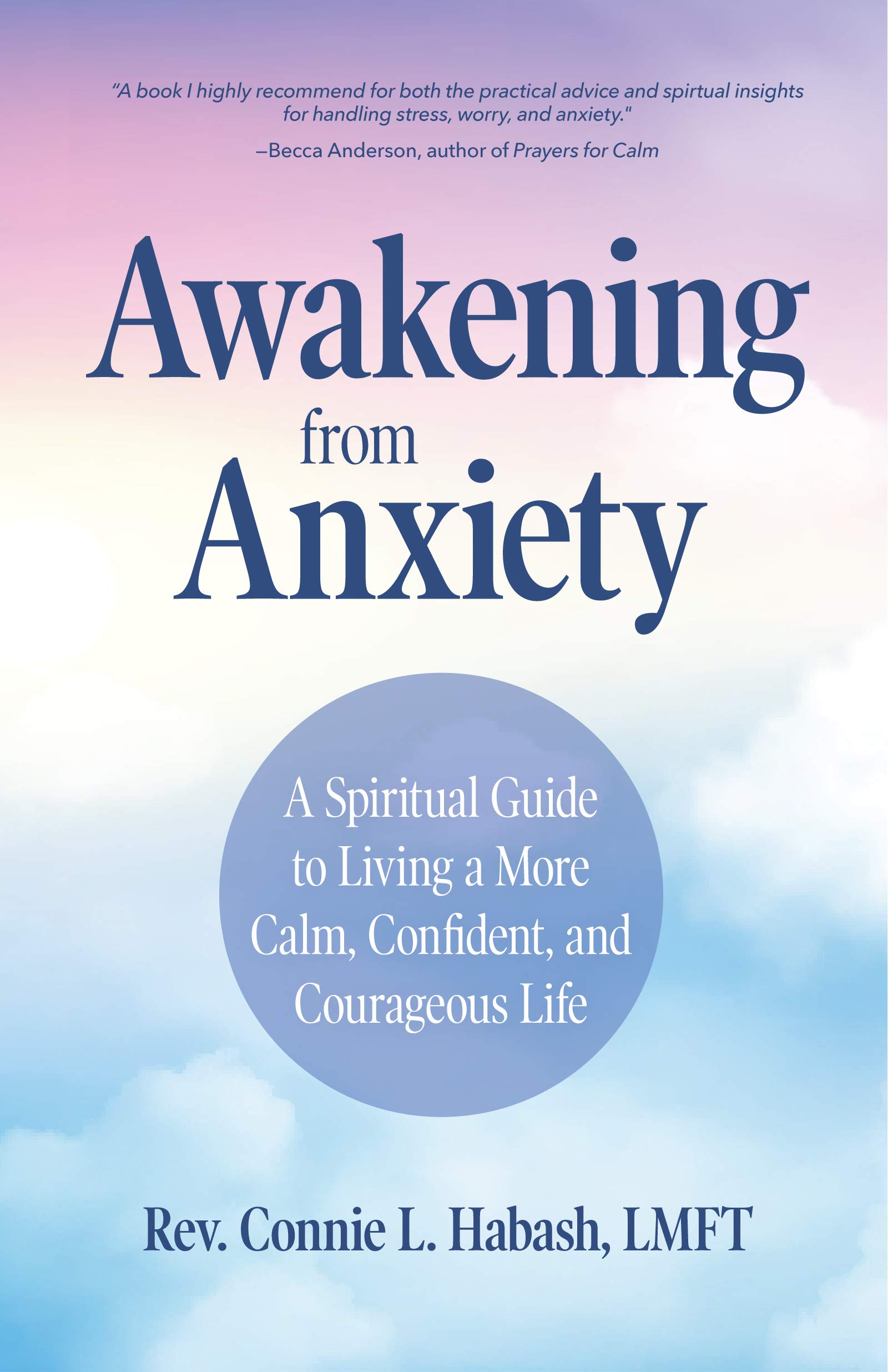By Rev. Connie L. Habash
When you set out to spiritually awaken, you may envision a peaceful, enlightened life – far from the stressors and worries of global crises and our day-to-day challenges. You might have chosen calming practices like yoga, meditation, prayer, or chanting, hoping to have a serene mind and blissful smile. But sometimes, when you meditate or pray, you don’t get the relief you hoped for. All kinds of distracting, anxious, upsetting, annoying thoughts arise. You may wonder, what am I doing wrong? This isn’t supposed to happen!
No, you’re not doing anything wrong. This does, indeed, happen. It’s frustrating, but an essential part of the path. Why, you may wonder, does it seem that the more I meditate, the more I have anxious thoughts? Whenever I do yoga, why do I get so emotional? How is it that spiritual practices seem to increase the very anxiety I’m trying to get rid of? Or, why does it work for a little while, and then an hour later, all that agitation has returned?
It’s a good question, and I’m here to share with you why. Spiritual practice doesn’t need to increase anxiety, but sometimes it does. It can for several reasons.
How you practice matters
Often, it has nothing to do with whether you’re choosing yoga or tai chi, meditation or prayer, an earth-based ritual or ecstatic dancing – it’s how you think about what you’re doing that causes the internal reactions. Are you judging or comparing yourself as you practice? Do you constantly worry about doing it “right”, better than others, or trying to be perfect? Do you worry that you can’t do it?
All of those thoughts are affecting your experience of the practice and hence, the results. If you tend to be a perfectionist, or are generally self-critical, those same thoughts will show up when you’re on the mat or cushion.
Clinging to Control and Results
If you’re expecting a certain outcome when you sit to meditate, you might be disappointed. You may even believe that you’ve failed if it doesn’t turn out a certain way, and that’s going to increase anxiety.
You can’t control what happens when you sit on your cushion or roll out a mat. Some days, your body just won’t cooperate, or your mind is agitated. Clinging to control and certain results will only increase frustration. It’s paradoxical, but the best way to experience inner peace is to let go of the expectation of having it!
Aware of Being Aware
That slick little mind may have tricked you on a deeper level. You may know that you’re “supposed” to let go of thoughts and attachments, and simply practice for practice’s sake. Then you catch yourself judging or controlling, and you tell yourself, there I go again – I’m not supposed to do that! Another whole layer of self-judgment arises when you become aware of your tendencies. On top of that, you may judge yourself for judging yourself for judging. Hmmm, see the hamster wheel here? Once you’re aware of being aware of yourself, be on notice for using that new awareness to reinforce an old habit of criticism, judgment, and control.
Noticing What’s Already There
Most of the time, we’re thinking unconsciously throughout our day. Especially in the beginning, when you undertake mindfulness and spiritual practices that expand your awareness, you’re probably going to notice anxious, angry, or disturbing thoughts when they arise more, not less.
It may seem that they increase, but it’s simply the fact that now you’re aware of what’s been going on all along. That awareness gives you the power to choose, rather than continue to be at the effect of those unconscious, agitating thoughts. But at first, it can confuse and make you doubt yourself. Rest assured, you’re normal and with the proper adjustment of attention and attitude, it will shift into more peacefulness.
What to Do About It?
Now that you understand why it’s happening, what do you do? Here are some simple keys to find more calm and ease when anxious, disturbing thoughts arise.
- Practice
It takes a while to tackle old thought patterns, and when you’re becoming more conscious, you’ll notice them arise. Remember that the goal isn’t to become perfect; it’s to awaken. Keep practicing. The more consistent you are not only with your spiritual practices but also with redirecting your attention into new mental habits, the less those pesky, anxious thoughts will affect you.
- Presence
Presence is sustaining your awareness in the present moment, with a quiet mind and open heart. It’s a form of mindfulness. The mind quiets not by trying to turn off worrisome thoughts, but by shifting your attention into the here and now. Pay attention to your sensations and what you experience through your five senses. The more you shift into this moment, the less fears about the future or ruminations over the past will dominate your consciousness.
- Self-Compassion
When fearsome thoughts and emotions arise, rather than judge yourself for having them or becoming dismayed, stop. Be right here for yourself with kindness. Have compassion for the suffering that those thoughts create. Consider that there are many people in the world, right now, who are also going through something similar. A bit of self-compassion (not feeling sorry for yourself, but deep understanding for your pain) can help ease up your internal tension and allow those feelings to release.
- Friendliness
In yogic philosophy, there is a concept called maitri. It means friendliness. Of course, this is usually directed towards others, but I’d like for you to direct it towards yourself, too. Treat yourself like you would a good friend. A true friend is open, encouraging, supportive, and non-judgmental. Be open towards what arises within you. Let go of tendencies to compare and judge, which can cause you to feel more anxiety. If you’re feeling upset when you’re trying to pray or chant, be gentle and give yourself encouraging words. That’s maitri – being friendly towards yourself.
- Non-Attachment
There’s another concept from yoga philosophy that is helpful in overcoming stress and anxiety – vairagya. It means non-attachment. With the practice of vairagya, we learn to let go of expectations and outcomes. Not only that, but we also allow ourselves to appreciate our imperfect actions. Every step along the way towards a goal is worthy of appreciation and makes the journey more enjoyable, no matter how long it may take to get there. If circumstances don’t work out as expected, non-attachment allows us to feel that sense of OK-ness inside. So, no matter how your yoga practice goes today, if you have non-attachment, you can appreciate the simple fact that you did your best. That goes a long way to calming anxious thoughts.
We may experience an apparent increase in anxious thoughts during our spiritual practices from self-judgment, control, expectations, comparisons, and old, negative mental habits. That increase happens mostly from becoming more aware of our internal experience and mental habits. The path out of those stressful emotions is actually through them, by being consciously present with them.
With consistent practice, returning to the present moment, self-compassion, being more friendly to yourself, and non-attachment, you can develop the ability to embrace gracefully whatever arises. This cultivates mental and emotional resilience. Fear, anger, despair, anxiety, and stress may show up, but they don’t have to set you off balance anymore. You have the tools within you to return to that inner calm and ease, in spite of mental or emotional agitation.

REV. CONNIE L. HABASH, MA, LMFT, is a Licensed Marriage and Family Therapist, yoga & meditation teacher, Ecotherapist, spiritual mentor, and author of Awakening from Anxiety: A Spiritual Guide to Living a More Calm, Confident, and Courageous Life. Over the last 28 years, she has helped thousands of students and clients overcome stress, anxiety, depression, and spiritually awaken.
On the web
www.facebook.com/AwakeningSelf
Bookshelf
AWAKENING FROM ANXIETY: A SPIRITUAL GUIDE TO LIVING A MORE CALM, CONFIDENT, AND COURAGEOUS LIFE BY REV. CONNIE L. HABASH, published by Mango, paperback (224 pages).






